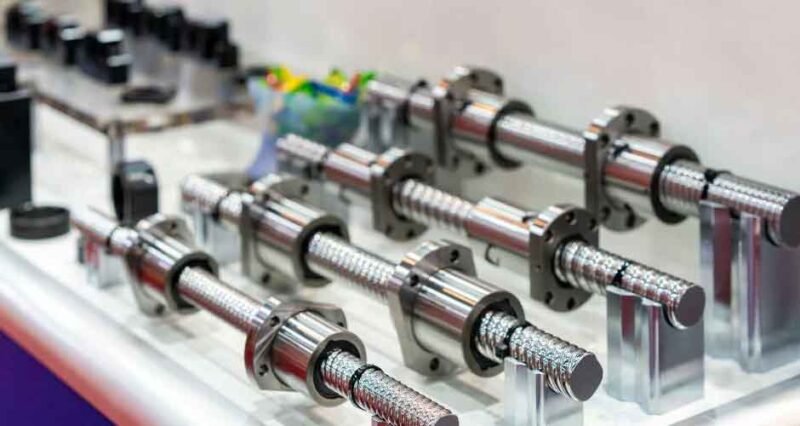
The heart of any CNC machine is its spindle, which plays a pivotal role in the precision of machining operations. Regular maintenance of the CNC spindle is crucial for ensuring consistent performance and longevity of the equipment. Neglecting its maintenance can lead to diminished accuracy, increased downtime, and costly repairs. Furthermore, a well-maintained spindle directly impacts the quality of the final product, ensuring that manufacturing standards are consistently met. Additionally, proactive spindle care can significantly extend the machine’s life span, maximizing the return on investment for businesses. Understanding the importance of routine checks and timely maintenance is the first step in safeguarding its functionality, and finding a reliable spindle repair service is crucial for this task.
Routine Inspection: The First Line of Defense
Consistent inspection is key in spindle maintenance. This involves regular checks for signs of wear, unusual noises, or vibrations during operation. Monitoring the temperature and noise levels can identify potential issues early. These inspections should be documented meticulously to track the spindle’s condition over time, allowing for easier identification of gradual changes. Moreover, a routine inspection regimen can instill a culture of responsibility and care among the machine operators.
Lubrication: A Critical Aspect
Proper lubrication is essential for spindle health. The type of lubricant and the frequency of lubrication depend on the spindle type and usage intensity. It’s crucial to follow the manufacturer’s guidelines for lubrication to ensure smooth operation. Inaccurate lubrication can lead to increased friction and heat, hastening the wear and tear of the spindle. Additionally, using the right grade and type of lubricant can prevent common issues like corrosion and rust.
Cleanliness: Preventing Contaminant Buildup
Maintaining cleanliness around the CNC machine plays a significant role in spindle care. Dust, debris, and coolant can accumulate over time, causing damage to the spindle. Regularly cleaning the spindle area and ensuring a contaminant-free environment will prolong the spindle’s life and maintain accuracy. A routine cleaning schedule should be established, and all operators should be trained on proper cleaning techniques. Using air guns and specialized cleaning solutions can also be effective in keeping the spindle in top condition.
Timely Repairs: Addressing Issues Early
Upon noticing any irregularities during routine inspections, timely repairs are essential. Whether it’s a bearing issue, imbalance, or wear and tear, addressing these problems immediately can prevent more severe damage. Employing skilled technicians ensures the issues are correctly diagnosed and effectively resolved. Delaying repairs can exacerbate issues, leading to more significant downtime and higher repair costs. Regular calibration and alignment checks should also be part of the repair protocol.
Understanding Spindle Repair Processes
Repairing often involves disassembling the spindle, inspecting all components, and identifying damaged parts. Replacing worn bearings, seals, and other components is a common part of the repair process. Precision is key in spindle repair, as even minor misalignments can affect the CNC machine’s performance. This process often requires specialized tools and expertise, emphasizing the importance of qualified technicians. Furthermore, each repair offers an opportunity to assess and improve the overall design and function of the spindle.
The Role of Professional Servicing
While basic maintenance can be performed in-house, professional servicing is recommended for comprehensive spindle repair. Experts have the tools, skills, and experience to diagnose and fix complex problems correctly. They can also provide valuable insights into preventative maintenance practices tailored to your machinery. Professional spindle repair service also ensures the spindle is repaired and optimized for peak performance. Additionally, these experts can offer training and support to in-house maintenance teams.
Upgrading Components
Sometimes, spindle repair provides an opportunity to upgrade components. Upgrades can enhance its performance, adapt it for new types of operations, or improve its durability. Consulting with spindle repair specialists can offer options for upgrades that suit your machining needs. Upgrades can include advanced bearing systems, enhanced sealing solutions, or integration with more sophisticated sensors for better performance monitoring. These improvements can increase efficiency, precision, and even energy savings.
Training Staff
Equipping your team with the knowledge and skills to perform basic spindle maintenance is beneficial. Regular training sessions on spindle care, proper usage, and early signs of wear can empower your staff to contribute to the spindle’s upkeep. A well-informed team is an asset in maintaining the overall health of CNC machinery. Continuous learning opportunities keep staff updated on the latest maintenance techniques and technologies. Empowering operators through education can also lead to a more engaged and responsible workforce.
Maintaining Records and Monitoring Performance
Keeping detailed records of maintenance schedules, repairs, and performance issues is crucial. These records help track the spindle’s health over time and plan preventative maintenance. Monitoring the spindle’s performance after repairs ensures that it is functioning at its optimal level. Detailed record-keeping aids in predictive maintenance, allowing for repairs and maintenance to be scheduled before major issues arise. Moreover, this data can be valuable for warranty claims and when seeking advice from repair specialists.
Conclusion
Effective CNC spindle repair and maintenance are about more than just fixing problems as they arise. It’s a commitment to precision, care, and understanding the intricacies of your machinery. Regular maintenance, timely repairs, and professional servicing are key components of this commitment. By following these top tips, you ensure the longevity and performance of your CNC spindle, ultimately leading to more efficient, reliable, and precise machining operations. This commitment to spindle care is a technical necessity and a cornerstone of quality manufacturing practices.


